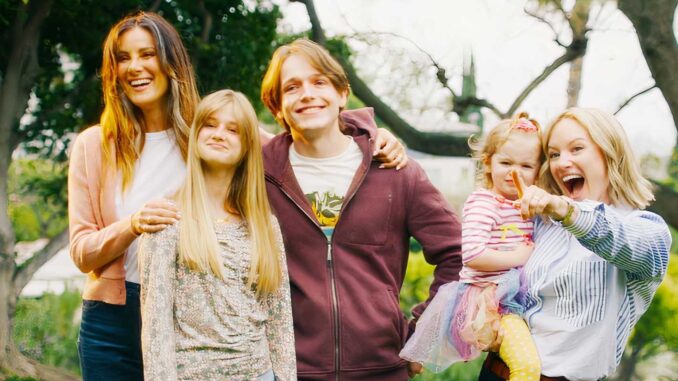
The Unfinished Symphony: Why Station 19 Fans Are Heartbroken Over Maya and Carina's Lost Storylines
In the tumultuous, high-stakes world of firefighting and emergency medicine, Station 19 often found its emotional anchor not in the blaze of a five-alarm fire, but in the quiet, profound moments between its characters. For many, the beating heart of the show, a beacon of love, growth, and hope, resided in the relationship between firefighter Maya Bishop and doctor Carina DeLuca. Their journey, lovingly dubbed "Marina" by fans, was a masterclass in modern, complex, and healthy LGBTQ+ representation. As the show concludes its run, a palpable ache, a collective sigh of grief, resonates through its fanbase. The heartbreak isn't merely over the show's cancellation; it’s a deeper sorrow, rooted in the cruelly truncated, irrevocably lost storylines that Maya and Carina deserved, and that audiences yearned to witness.
The foundation of this heartbreak lies in the sheer investment. Fans didn’t just watch Maya and Carina; they grew with them. From their fiery, undeniable chemistry to the slow, arduous work of building a life together, Marina represented a rare depiction of a long-term lesbian relationship evolving through significant challenges. Maya, the fractured perfectionist battling the ghosts of an abusive past, found a compassionate anchor in Carina, who, despite her own traumas, offered unwavering love and a safe space for healing. Their individual and shared character arcs were intricately woven into the fabric of the series. To see such a meticulously built, deeply beloved foundation abruptly cut short feels like a betrayal of that emotional investment, leaving a narrative tapestry woefully incomplete.
Perhaps the most glaring and painful loss is the journey into parenthood. Maya and Carina's arduous, emotionally draining IVF process was depicted with a raw honesty rarely seen on network television. The hope, the disappointment, the financial strain, and the sheer emotional fortitude required were portrayed with an authenticity that resonated deeply with countless viewers. Their eventual decision to pursue adoption, and the arrival of Liam, marked not an ending, but the beginning of a whole new chapter. Fans were not merely curious; they were deeply invested in witnessing Maya and Carina navigate the beautiful, messy, and profound realities of being two mothers raising a child. We were robbed of the lullabies, the sleepless nights, the first steps, the parent-teacher conferences, and the quiet, everyday moments that solidify a family. This wasn't just a plot point; it was the culmination of years of character development, a symbol of their enduring love and commitment finally bearing fruit. To have this profound domesticity – a queer family thriving on screen – snatched away feels like a profound void.
Beyond the shared journey, the truncation of Maya and Carina’s individual growth arcs amplifies the heartbreak. For Maya, the pathway to true self-acceptance, to understanding that her worth wasn't tied solely to her achievements or her father's approval, was a long one. Carina was instrumental in that healing. Fans were desperate to see Maya fully step into her power as a leader, not driven by ambition born of trauma, but by genuine self-confidence and an integrated identity. How would motherhood further shape her leadership style? How would her past continue to inform her present without defining her future? Similarly, Carina's storyline, often orbiting around Maya's more dramatic struggles, still held immense, untapped potential. Her desire for family stemmed from her own unique history, including the loss of her brother. We lost the chance to see her truly establish her roots, deepen her professional impact as a dedicated OB/GYN, and perhaps even confront the complexities of her own Italian family relationships outside the shadow of grief. These were not stagnant characters; they were dynamic beings perpetually on the cusp of deeper evolution, and their narratives have been unfairly curtailed.
Finally, the heartbreak over Marina's lost storylines is intrinsically linked to the broader impact of their representation. For many LGBTQ+ viewers, Maya and Carina were more than just characters; they were a sanctuary, a reflection of love that was both aspirational and deeply relatable. They offered a counter-narrative to often tragic or tokenized queer stories, presenting a thriving, healthy, and celebrated relationship that navigated real-world complexities without resorting to sensationalism. To have their future, their potential for sustained happiness and normalcy, disappear feels like a cruel echo of the historical dismissal of queer narratives. It underscores the fragility of representation, the constant fear that beloved stories will be deemed expendable.
The end of Station 19 leaves behind a powerful legacy, but for Marina fans, it's also a legacy of what could have been. The heartbreak over Maya and Carina's lost storylines isn't merely about plot points unwritten; it's a deep lament for unfulfilled potential, for a family denied its on-screen life, and for a powerful symbol of love and resilience left suspended in an unfinished symphony. It's a reminder that sometimes, the most poignant stories are those that end not with a dramatic flourish, but with the quiet, devastating fade to black of a future we were promised, but will never see.